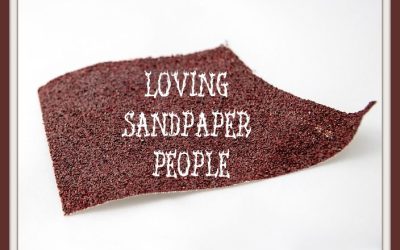Care & Compassion in a Dog-Eat-Dog World
“Nobody cares how much you know until they know how much you care.”
Great advice. But in our culture of sound bites and 280-character tweets, caring has often deteriorated to posting platitudes and memes on social media. We’re too busy, too overwhelmed, too self-focused—barely able to care for ourselves, never mind caring for others!
For more than 85 years, the slogan of a well-known greeting card company has been, “When you care enough to send the very best.” But is that what the apostle Paul meant when he wrote, “Members…have the same care for one another” (1 Cor. 12:25 NASB)?
Biblical care is more than a mere claim to care. Just as it takes work to exercise our bodies, we need to be intentional about expending energy in specific acts of caring. And caring doesn’t always look like caring.
God’s Care & Compassion in Unexpected Ways
The Bible is full of descriptions of people who discovered—often to their surprise—the extent of God’s care for them.
In Genesis 16:10, we see God cared for Hagar and the baby in her womb by promising Ishmael a future. Hagar’s descendants would be too numerous to count. But in the same conversation, God also told Hagar to return to the mistress who mistreated her.
True caring means doing what’s best for the person, even when it’s not what they might want. This can be tricky. If the other person had offended me, then my motive in not doing what they want may be more about my own agenda and convenience than doing what’s best for them.
When we truly care about others, our care is expressed in action that may be inconvenient. And sometimes we can be misunderstood. Still, God cares for us, and He calls us to care for each other.
Motivated by Compassion
When we have compassion for someone else, we suffer with them. Their pain is our pain. We rejoice with those who rejoice and weep with those who weep (Rom. 12:15).
Sometimes old wounds make it difficult for us to rejoice or weep with others. The pain might be too fresh or too deep. We’re just not ready to go there. And because we’re often focused on our own pain, we don’t naturally prioritize compassion for the pain of others.
Showing compassion in tangible ways can get messy. It will cost something. Compassion may have cost the Good Samaritan his robe as he tore his clothes to make bandages to bind up another’s bleeding wounds. Compassion may be costly and messy for us, too. It might mean something as small as being late for an appointment because you stopped to buy a meal for a homeless person. Or it could be as large as opening your home and family to foster a child.
Compassion can also require perseverance as we see in Luke 5 when several men lowered their paralyzed friend through a roof to be healed by Jesus.
Defined by Care & Compassion or Something Else?
These days, Christians are often defined by what we are against than what we are for. Are we willing to show compassion to those who have done nothing to deserve it? Compassion is not the same as approval. We can take a stand for righteousness and still be compassionate toward those who desperately need the salvation Christ purchased for us on the Cross.
Where is God asking you to make room for some additional messiness in your life in the cause of compassion?
What are some practical ways you can show someone you care about them?






0 Comments